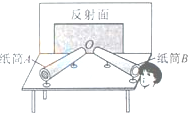热力学第二定律可表述为()。
A.功可以完全变为热,但热不能完全变为功
B.热量不能从低温物体传到高温物体
C.热可以完全变为功,但功不能完全变为热
D.热量不能自动地由低温物体传到高温物体
参考答案:D
解析:
热力学第二定律及其统计意义:
任何一个热力学过程都必须遵守热力学第一定律,但不违背热力学第一定律的过程并非都能实现。这里有个过程进行的方向和限度问题。热力学第一定律没有涉及这个问题,而热力学第二定律则说明了这个问题,它有多种表述,这里介绍两种公认的表述。
(1)开尔文表述:不可能制成一种循环动作的热机只从单一热源吸取热量,使之完全变为有用功,而其他物体不发生任何变化。
(2)克劳修斯表述:热量不可能自动地从低温物体传向高温物体。
可以证明开尔文表述和克劳修斯表述是等价的。
热力学第二定律本质上是一条统计规律。它指出,一般说来,一个不受外界影响的封闭系统,其内部发生的过程,总是由几率小的状态向几率大的状态进行,由包含微观状态数目少的宏观状态向包含微观状态数目多的宏观状态进行。
由于热力学第二定律从本质上讲是一条统计规律,因此,对少量分子组成的系统是不适用的。另外热力学第二定律是确立在有限的时间和空间上的,不能无限外推。

